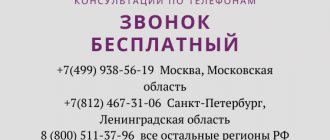Who is eligible for benefits
The organization of paid parking and the list of beneficiaries is regulated by Moscow Government Decree No. 289-PP dated May 17, 2013. To be exempt from parking fees, you must obtain a permit, because all beneficiaries are included in a single register.
Now about who gets free parking.
The benefit can be used by:
- Residents: citizens living near the paid parking area on the basis of a lease agreement and property rights.
- Large families.
- Disabled people, parents of disabled children.
- Participants of the Second World War, former minor prisoners of concentration camps, participants in the defense of Moscow.
The last category of citizens is granted a benefit after obtaining a residence permit.
What are the parking benefits in Moscow and how to get them
You can park your car for free for no more than 24 hours in a space marked as a parking lot for disabled people. This rule also applies to family members of a disabled person who does not travel in a personal vehicle, but with the help of someone else as a driver. Zoning at the place of residence does not apply in such cases. But free parking in such a situation is possible only after obtaining a special permit and applies to the only vehicle that is indicated in it. When changing a vehicle, you must obtain a new permit.
We recommend reading: Time for renovations in apartments according to the law 2020
The permit can be registered for 1-3 years, but can also be extended. To extend the assignment of a parking space, this must be done at least two months before the end of the previous period. But the new design will begin after the old one ends.
Registration of a resident parking permit
The permit is issued for a period of 1 to 3 years to citizens who are permanently registered in a residential building next to which there is paid parking. It can also be issued by employers under a tenancy agreement if there is temporary registration. But in this case, the document will be issued for the period of validity of the registration. Parking is free from 20.00 to 08.00 daily.
Residents are issued no more than two permits for one apartment. One of the main conditions is the presence of a car that is owned and the absence of outstanding fines.
Residents belonging to the Heroes of the USSR or the Russian Federation, Heroes of Labor, participants of the Second World War, can obtain a 24-hour permit. One document is given per living space. But, unlike the standard one, it gives the right to park in any paid zones.
Where to apply?
You can obtain permission through the MFC “My Documents” or the website of the mayor of the capital.
In the first case you need to do:
- Collect documents.
- Make an appointment at the MFC. Pre-registration is available on the department’s website, mos.ru, or by phone.
- Arrive at the appointed time and submit documents.
The permit is issued within 6 working days.
Documentation
To become the owner of a resident parking permit, you must submit the following documents:
- Statement. Filled out manually when contacting the MFC. If documents are submitted online, the information is entered by the applicant into an electronic form.
- Passport.
- STS.
- A copy of the rental agreement, if the apartment is not your own.
If the applicant owns only a share in the property right, the consent and passports of the remaining owners will be required.
Is it possible to park 24 hours a day?
As mentioned earlier, the permit is valid from 20.00 to 08.00. The rest of the time you will have to pay for parking. But residents can apply for a 24-hour resident permit by paying a fee depending on the validity period:
- 3,000 rub. - for 1 year.
- 6,000 rub. – for 2 years.
- 9,000 rub. – for 3 years.
A 3-year permit can be paid in installments, but at the beginning of the new year there must be at least 3,000 rubles in the account. Otherwise, the document will become invalid.
You can send a message to the executive authorities of the city of Moscow as part of a pre-trial appeal.
1. The applicant has the right to file a pre-trial (out-of-court) complaint against decisions made (committed) in the provision of public services and (or) actions (inaction) of the State Public Institution "AMPP", MFC, and their employees.
2. The filing and consideration of complaints is carried out in the manner established by Chapter 2.1 of the Federal Law of July 27, 2010 N 210-FZ “On the organization of the provision of state and municipal services”, the Regulations on the specifics of filing and consideration of complaints about violations of the procedure for the provision of public services in the city of Moscow, approved by Decree of the Moscow Government of November 15, 2011 N 546-PP “On the provision of state and municipal services in the city of Moscow”, these Regulations.
3. Applicants may file complaints in the following cases:
4. Violations of the deadline for registering a request (application) and other documents necessary for the provision of public services, as well as the procedure for processing and issuing a receipt for receipt of a request and other documents (information) from the applicant.
5. Requirements from the applicant:
6. Documents, the submission of which by the applicant for the provision of public services is not provided for by the regulatory legal acts of the Russian Federation and the city of Moscow, including documents obtained using interdepartmental information interaction.
7. Applications for the provision of services not included in the list of services approved by the Moscow Government that are necessary and mandatory for the provision of public services.
8. Payment of fees for the provision of public services not provided for by regulatory legal acts of the Russian Federation and the city of Moscow.
9. Violations of the deadline for the provision of public services.
10. Refusal to the applicant:
11. In accepting documents, the submission of which is provided for by the regulatory legal acts of the Russian Federation and the city of Moscow for the provision of public services, on grounds not provided for by the regulatory legal acts of the Russian Federation and the city of Moscow.
12. In the provision of public services on grounds not provided for by the regulatory legal acts of the Russian Federation and the city of Moscow.
13. In the correction of typographical errors and errors in documents issued as a result of the provision of public services, or in case of violation of the established deadline for such corrections.
14. Other violations of the procedure for providing public services established by regulatory legal acts of the Russian Federation and the city of Moscow.
15. Complaints about decisions and (or) actions (inaction) of employees of the State Public Institution "AMPP" are considered by the head (authorized deputy head) of the specified organization. Complaints against decisions and (or) actions (inaction) of the head of the State Public Institution "AMPP", including decisions made by him or his deputy on complaints received in a pre-trial (extrajudicial) manner, are considered by the Department of Transport and Development of Road Transport Infrastructure of the City of Moscow.
Complaints about decisions and (or) actions (inaction) of MFC employees committed when providing government services in accordance with agreements on interaction concluded with the executive authorities of the city of Moscow, organizations subordinate to them, are considered by the director (authorized deputy director) of the State Budgetary Institution of the city of Moscow " Multifunctional centers for the provision of public services Multifunctional centers for the provision of public services of the city of Moscow”, accepted on complaints received in a pre-trial (out-of-court) manner, are considered by the Office of the Mayor and the Government of Moscow.
16. Complaints can be submitted to the executive authorities of the city of Moscow and organizations subordinate to them authorized to consider complaints in accordance with these Regulations (hereinafter referred to as bodies and organizations authorized to consider complaints), in writing on paper, in electronic form by one of in the following ways:
17. Upon personal application by the applicant (applicant’s representative).
18.Through the MFC.
19. By post.
20. The clause became invalid as of November 1, 2020 - Moscow Government Resolution No. 550-PP dated September 6, 2020.
21. Using the official websites of bodies and organizations authorized to consider complaints on the Internet.
22. The complaint must contain:
23. The name of the body (organization) authorized to consider the complaint or the position and (or) surname, first name and patronymic (if any) of the relevant official to whom the complaint is sent.
24. The name of the executive authority of the city of Moscow, the organization subordinate to the executive authority, the MFC, or the position and (or) surname, first name, patronymic (if any) of the official, civil servant, employee, decisions and (or) actions (inaction) of which are appealing.
25. Last name, first name, patronymic (if available), information about the applicant’s place of residence, as well as contact telephone number(s), email address(es) (if available) and postal address to which the response should be sent to the applicant.
26. The date of submission and registration number of the request (application) for the provision of a public service (except for cases of appealing the refusal to accept the request and its registration).
27. Information about decisions and (or) actions (inactions) that are the subject of appeal.
28. Arguments on the basis of which the applicant does not agree with the appealed decisions and (or) actions (inactions). The applicant may submit documents (if any) confirming the applicant’s arguments, or copies thereof.
29. Applicant's requirements.
30. List of documents attached to the complaint (if any).
31. Date of filing the complaint.
32. The complaint must be signed by the applicant (his representative). If a complaint is filed in person, the applicant (applicant's representative) must provide an identification document.
The authority of the representative to sign the complaint must be confirmed by a power of attorney issued in accordance with the legislation of the Russian Federation.
The status and powers of legal representatives of an individual are confirmed by documents provided for by federal laws.
33. A received complaint must be registered no later than the working day following the day of receipt.
34. The maximum period for consideration of a complaint is 15 working days from the date of its registration. The period for consideration of the complaint is 5 working days from the date of its registration in cases of appeal by the applicant:
35. Refusal to accept documents.
36. Refusal to correct typos and errors made in documents issued as a result of the provision of public services.
37. Violations of the deadline for correcting typos and errors.
38. Based on the results of consideration of the complaint, a decision is made to satisfy the complaint (in whole or in part) or to refuse to satisfy the complaint.
39. The decision must contain:
40. Name of the body or organization that considered the complaint, position, surname, first name, patronymic (if any) of the official who made the decision on the complaint.
41. Details of the decision (number, date, place of adoption).
42. Last name, first name, patronymic (if any), information about the applicant’s place of residence.
43. Last name, first name, patronymic (if any), information about the place of residence of the applicant’s representative who filed the complaint on behalf of the applicant.
44. Method of filing and date of registration of the complaint, its registration number.
45. Subject of the complaint (information about the decisions, actions, or inactions being appealed).
46. The circumstances established during the consideration of the complaint and the evidence confirming them.
47. Legal grounds for making a decision on a complaint with reference to the applicable regulatory legal acts of the Russian Federation and the city of Moscow.
48. The decision taken on the complaint (conclusion on the satisfaction of the complaint or refusal to satisfy it).
49. Measures to eliminate identified violations and deadlines for their implementation (if the complaint is satisfied).
50. Procedure for appealing a decision.
51. Signature of an authorized official.
52. The decision is made in writing using official forms.
53. The measures to eliminate identified violations specified in the decision include:
54. Cancellation of previously made decisions (in whole or in part).
55. Ensuring the acceptance and registration of the request, execution and issuance of a receipt to the applicant (in case of evasion or unreasonable refusal to accept documents and their registration).
56. Ensuring registration and delivery to the applicant of the result of the provision of a public service (in case of evasion or unreasonable refusal to provide a public service).
57. Correction of typos and errors made in documents issued as a result of the provision of public services.
58. Refund to the applicant of funds, the collection of which is not provided for by the regulatory legal acts of the Russian Federation and the city of Moscow.
59. The body or organization authorized to consider the complaint refuses to satisfy it in the following cases:
60. Recognition of the appealed decisions and (or) actions (inactions) as legal, not violating the rights and freedoms of the applicant.
61. Filing a complaint by a person whose powers have not been confirmed in the manner established by regulatory legal acts of the Russian Federation and the city of Moscow.
62. The applicant does not have the right to receive public services.
63. Availability:
64. A court decision on the applicant’s complaint with identical subject matter and grounds that has entered into legal force.
65. Decisions on a complaint made earlier in a pre-trial (out-of-court) manner in relation to the same applicant and on the same subject of the complaint (except for cases of appealing against previously made decisions to a higher authority).
66. The complaint must be left unanswered on the merits in the following cases:
67. The presence in the complaint of obscene or offensive language, threats to the life, health and property of officials, as well as members of their families.
68. If the text of the complaint (part of it), last name, postal address and email address are not readable.
69. If the complaint does not indicate the name of the applicant (the applicant’s representative) or the postal address and email address to which the response should be sent.
70. If the body or organization authorized to consider the complaint received a request from the applicant (the applicant’s representative) to withdraw the complaint before a decision on the complaint is made.
71. The decision to satisfy the complaint or to refuse to satisfy the complaint is sent to the applicant (the applicant’s representative) no later than the working day following the day of its adoption, to the postal address specified in the complaint. At the request of the applicant, the decision is also sent to the email address specified in the complaint (in the form of an electronic document signed with the electronic signature of an authorized official). In the same manner, the applicant (the applicant’s representative) is sent a decision on the complaint, in which only an email address is indicated for the response, and the postal address is missing or cannot be read.
72. If the complaint is left unanswered on the merits, the applicant (his representative) is sent, no later than the working day following the day of registration of the complaint, a written motivated notification indicating the grounds (except for cases where the complaint does not indicate a postal address and email address email for a response or they are unreadable). The notice is sent in the manner established for sending a decision on a complaint.
73. A complaint filed in violation of the rules on competence established by paragraph 5.4 of these Regulations is sent no later than the working day following the day of its registration to the body authorized to consider the complaint, with simultaneous written notification to the applicant (his representative) about the redirection complaints (except for cases where the complaint does not indicate a postal address and email address for a response or they are not legible). The notice is sent in the manner established for sending a decision on a complaint.
74. Filing a complaint in a pre-trial (out-of-court) manner does not exclude the right of the applicant (applicant’s representative) to simultaneously or subsequently file a complaint with the court.
75. Informing applicants about the judicial and pre-trial (extrajudicial) procedure for appealing decisions and (or) actions (inactions) committed in the provision of public services should be carried out by:
76. Placing relevant information on the Portal and stands at places where public services are provided.
77. Consulting applicants, including by telephone, email, and in person.
78. If, during or as a result of consideration of a complaint, signs of an administrative offense or crime are identified, the official empowered to consider the complaint immediately forwards the available materials to the prosecutor’s office.
If violations of the procedure for the provision of public services of the city of Moscow are identified, the responsibility for which is established by the Code of the City of Moscow on Administrative Offenses, the official empowered to consider the complaint must also send copies of the available materials to the Main Control Department of the city of Moscow within two working days following after the day the decision on the complaint was made (but no later than the working day following the day of expiration of the period established by federal legislation for consideration of complaints about violations of the procedure for the provision of public services).
Parking permit for large families
A family with three or more minor children (born or adopted) is recognized as having many children. One of the parents can obtain permission for a car registered to him. It is important that he does not have any unpaid fines for traffic violations or non-payment of parking.
Who can take advantage of the benefit
In Russia, a family with three or more dependent minor children is considered to be large. If the senior turns 18 but continues to study full-time, the status is extended until he reaches 23 years of age or until he receives a diploma.
The status of having many children is confirmed by an appropriate certificate issued upon the application of one of the parents in Social Security. You can get it immediately after the birth of your third child.
Beneficiaries who have issued certificates must meet other criteria to obtain a free parking permit:
- Russian citizenship;
- Moscow registration;
- No unpaid fines or other debts to the state.
Important! The benefit applies only to one car per family. If families with many children have several vehicles, it is recommended to apply for a permit for one of them, which is used most often.
Dear reader!
The article provides basic information, but most cases are individual in nature. In this connection, our website employs on-duty lawyers whom you can contact by phone:
- Moscow ext 152
- St. Petersburg ext 152
- All regions ext 132 (Toll free)
When you contact us, you will receive advice specifically on your problem.
Like residents, families with many children can apply for a permit online or at the MFC. Its validity period will be 3 years. You can park there in any paid parking zone.
The permit may be suspended if the beneficiary has debts for three or more fines. Notification of this is received via SMS or the Moscow Parking application. After receiving the notification, 10 days are allotted for payment, after which the permit is suspended.
Documentation
To obtain a parking permit for large families, it is enough to submit:
- Statement.
- Passport.
- STS.
If a trusted person acts on behalf of the beneficiary, you will need a power of attorney and his passport.
Benefits for large families Moscow region parking
12) Also, large families living in Moscow are entitled to a monthly compensation payment due to the rising cost of living.
Regardless of the family’s income level, if there are 3-4 children, 600 rubles are due. for everyone. And for families with 5 or more children - 750 rubles for each child. To receive this benefit, you must submit an application to the department of social protection of the population at your place of residence for payment of benefits (compensation payments).
We recommend reading: Amount of Debt from Bailiffs for Seizure of Property
To receive this benefit, in addition to documents confirming the large number of children and the identity of the parents and child, you need to take a medical certificate from the clinic in the form 070/u-04 and contact the clinic or the district department of social protection of the population at your place of residence.
Parking permit for disabled people
Disabled people and parents of disabled children, on the basis of a permit, can park for free in areas marked with sign 8.17 or markings 1.24.3. In other places, parking is paid according to general conditions.
Permission is issued for the following vehicles:
- Registered with the State Traffic Safety Inspectorate for a beneficiary or parent of a child with a disability.
- Previously issued by social security in accordance with medical indications.
- Belonging to citizens transporting disabled people.
Owners of motorcycles and electric vehicles can park them in any paid parking lot without obtaining permission. Cars of disabled people must be equipped with appropriate plates (stickers).
Documentation
When applying for a permit, an application, a certificate of disability, and a passport are submitted. If a representative is acting on behalf of a disabled person, you will need a power of attorney and his/her identification card. For parents of disabled children, a birth certificate is sufficient.
Free parking for large families in Moscow
- passport. You should prepare an original and a copy of the document. The passport must contain a registration mark;
- birth certificates of all children who are being raised in a family claiming the status of a large family;
- court order on adoption (if necessary);
- a certificate issued by the house management or passport office confirming that all children are registered with their parents;
- all certificates of marriages and divorces, as well as death certificates of previous spouses (if available);
- a certificate from a general education institution where children over 16 years of age are studying;
- photographs 30x40 mm, which will be pasted into the ID.
Moscow is a huge metropolis, where the problem of traffic jams on roads during rush hours is too pressing. But it’s not just traffic jams that cause inconvenience to Muscovites. Almost all car owners are unhappy with the lack of parking space; it is especially problematic to park their cars in the Central Administrative District on weekdays. Of course, many events have been held, paid guarded parking lots have been equipped, and maximum efforts have been made to simplify the life of motorists in Moscow.
How to apply for a permit through the Moscow Mayor’s website: step-by-step instructions
First you need to go to the mayor’s website, then go to the “Service Catalog” section. The next steps look like this:
- Select "Personal Transport". This section is on the left side of the page.
- Click on “Parking permit for a large family” or another section depending on the basis on which it should be issued.
- Select “Registration”, then “Get a service”.
- Go through authorization through “State”, another service, or log in using an electronic signature. But if you are registered on the mayor’s portal itself, a login and password are enough.
- Select “Enrollment in the register of parking permits...”, then “Receive” and “Continue”.
- Provide information about the applicant: representative, parent, beneficiary himself.
- Select the validity period of the permit: from 1 to 3 years.
- Indicate information about the residential address if you are applying for a residence permit: county, district, street, house, apartment.
- Attach scanned documents and submit your application for verification.
Notification of the readiness of the permit will be sent to your personal account.
Parking for large families in Moscow
In other cases, the owner of the car must have permission to use Moscow parking lots for free. Thanks to the constant growth of automated parking spaces, it is planned that soon a father or mother with many children will not have to constantly carry documents confirming the right to use free parking.
The number of social support measures for large families from the state is constantly increasing. More recently, parking for large families in Moscow became free, but few citizens know how to use it correctly.
When can a permit be revoked?
The grounds for revocation of a permit may be:
- Sale of the car for which it was registered. All information about transactions is promptly received by Moscow Parking, and immediately after receiving the information, the document ceases to be valid.
- Termination of a tenancy agreement, social tenancy agreement.
- Sale, exchange, donation of a share in property rights by the owner of the permit.
- Termination or expiration of a tenancy or sublease agreement.
- Cancellation of temporary or permanent registration at the place of residence.
- Death of the citizen specified in the permit.
- Recognition of a citizen as dead or missing.
The document can be canceled at the initiative of its owner or at the request of the State Public Institution "AMPP". The service is provided free of charge.
Free parking in Moscow for large families from the Moscow region
For the Moscow region, a large family will be considered a family with 3 or more children. The age of the older children does not matter, the main thing is that the youngest should not be more than 16 years old (or 18 years old if he is in school). More details about what kind of family is considered large in Moscow can be found in this article.
We recommend reading: Experience for Obtaining Veterans in the Tver Region in 2020
MFC - 1) Consent must be certified by an MFC employee in the presence of all owners/tenants (under a social tenancy agreement for residential premises) and by providing documents confirming their identity and rights of ownership of the residential premises. 2) Consent must be certified by a notary, in the absence of personal appearance of other owners of residential premises at the MFC)










